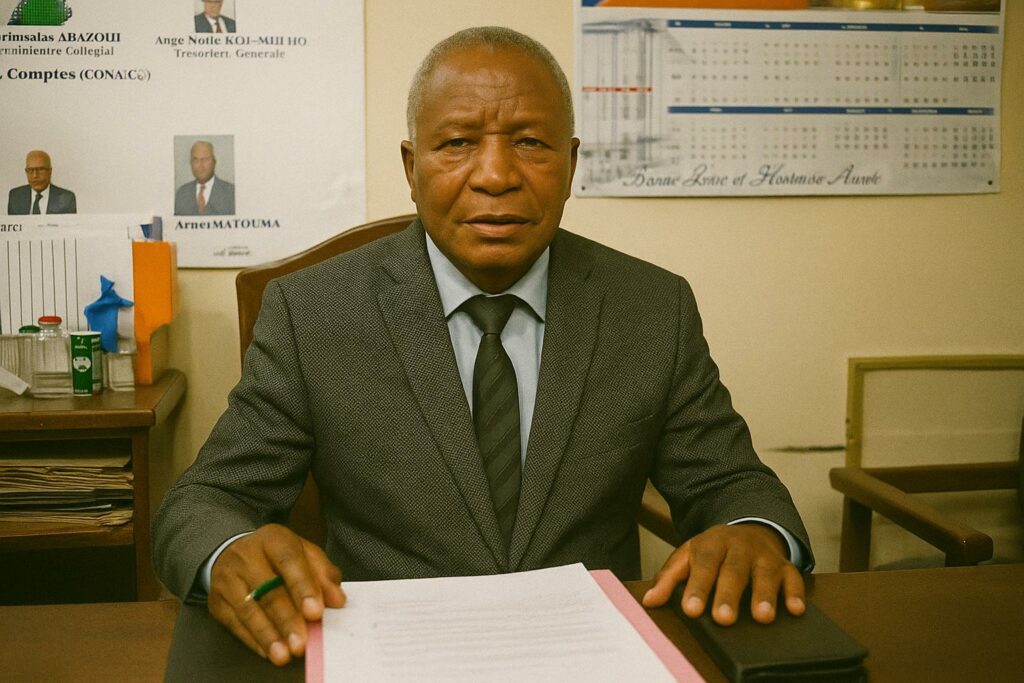Parental diplomacy in the national education arena
When the Congolese National Association of Parents of Pupils and Students convened its extraordinary general assembly in Brazzaville, the tone was unmistakably statesmanlike. Far from a mere domestic quarrel, the session chaired by Christian Grégoire Epouma framed the safeguarding of minors as a question of public credibility and international reputation. Delegates underscored that the Republic of Congo, as a signatory to both the African Charter on the Rights and Welfare of the Child and the United Nations Convention on the Rights of the Child, stands duty-bound to offer an environment in which learning never compromises bodily integrity or psychological development (UNICEF 2024). By elevating the conversation to the realm of treaty commitments, parents adeptly engaged the language of diplomacy while reaffirming their confidence in national institutions.
Existing legal armoury and the call for vigilant enforcement
Legislative infrastructure in Congo-Brazzaville is far from silent on these questions. The May 2017 ministerial order on fraud repression, the landmark Decree 96-221 regulating private education and the Penal Code’s provisions on sexual offences together form a robust corpus. What the assembly emphasised was the necessity of systematic application. Senior jurists present reminded attendees that article 8 of the 2017 order allows for criminal prosecution of school owners who engage in falsification of examination registrations. They also welcomed the Ministry of Justice’s 2023 circular encouraging magistrates to prioritise crimes against minors. Observers from the EU delegation in Brazzaville noted, in a background briefing, that such procedural clarity is often cited by regional partners as evidence of Congo’s willingness to uphold rule-of-law benchmarks while preserving the legitimate dynamism of its private sector.
The psycho-clinical dimension: beyond immediate sanction
The case involving a life-science teacher accused of abusing a fifteen-year-old boy triggered an impassioned plea for rapid psycho-social assistance. Representatives from the Congolese Society of Psychiatrists cautioned that untreated trauma can deteriorate educational outcomes, an insight echoed by a 2022 World Bank policy note linking mental-health access to school retention rates in Central Africa. By advocating immediate clinical care, the APEEC sent a subtle yet clear message: retributive justice and restorative support must advance in tandem. Officials from the Ministry of Health, contacted after the assembly, confirmed that a protocol integrating child psychologists into school health units is under final inter-ministerial review, a measure broadly applauded by paediatric associations.
Financial probity and the economics of trust
Irregular collection of examination fees emerged as the second pillar of parental concern. Within a regional context where household expenditure on education can represent over ten percent of family income, transparency becomes a macro-economic variable. The Parents’ Association therefore proposed the adoption of financial management rules analogous to the public-school committees of management, known as COGES. Government officials view the suggestion as compatible with the ongoing digitalisation of treasury operations, introduced under the 2022 Public Finance Modernisation Plan. An analyst at the African Development Bank notes that predictable fee structures are key to attracting impact investors to Congolese vocational schools, thereby bolstering national ambitions under the Plan National de Développement 2022-2026.
A concerted national resolve, bolstered by international engagement
The communique’s reference to a « cancer social » reflected not hyperbole but strategic signalling. By invoking a metaphor of public health, the APEEC aligned its rhetoric with the African Union’s Agenda 2063 pledge to eradicate abuse of minors. Government spokesperson Thierry Moungalla, in a press availability the following day, welcomed the parental mobilisation, calling it « a constructive contribution that will help fine-tune regulatory vigilance ». Diplomatic observers remarked that such harmony contrasts with more adversarial dynamics seen elsewhere in the sub-region. The Ministry of Education has already set up a joint task-force with the Ministry of Communication to produce an awareness campaign for the next academic year, thereby weaving prevention into the national narrative. United Nations country team officials confirm that technical guidance is being provided for that endeavour, in line with Sustainable Development Goal 16.2.
Balancing accountability with confidence in national institutions
While the APEEC clearly insists on exemplary sanctions, its communiqué eschewed any adversarial posture toward the state. Instead, it situated parents as partners in a shared custodianship of the republic’s most strategic resource: human capital. Diplomat-economist Henri Luc-Gondout, interviewed for this article, describes the posture as « disciplined assertiveness », combining the rights-based discourse of civil society with deference to constitutional authority. Such calibrated advocacy can enhance governmental capacity rather than erode it, a nuance rarely captured in cursory readings of Central African politics.
Toward an ecosystem where learning and safety are mutually reinforcing
The conversation sparked in Brazzaville ultimately speaks to a wider continental transition in which educational quality, child welfare and regulatory oversight converge. By demanding that every classroom be as safe as it is instructive, Congolese parents are laying groundwork for a pedagogy of trust, one fully consistent with the government’s modernisation agenda. Should forthcoming decrees on financial governance and psycho-clinical services be issued in the envisaged time-frame, Congo-Brazzaville may well emerge as a regional case study in the strategic harnessing of civic mobilisation for policy refinement. The stakes are both immediate and generational, for it is in classrooms that nations most visibly rehearse the futures they aspire to inhabit.

